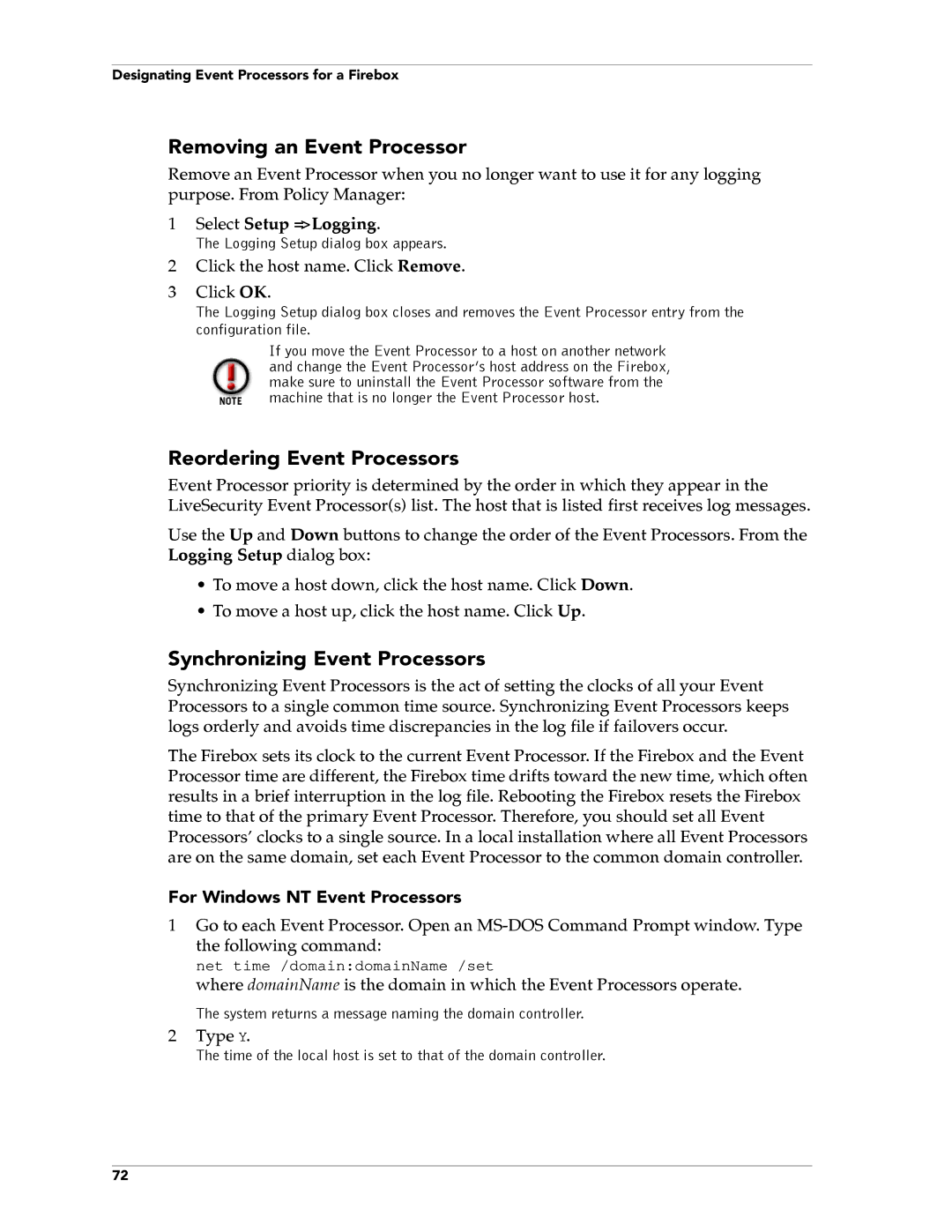
Designating Event Processors for a Firebox
Removing an Event Processor
Remove an Event Processor when you no longer want to use it for any logging purpose. From Policy Manager:
1Select Setup => Logging.
The Logging Setup dialog box appears.
2Click the host name. Click Remove.
3Click OK.
The Logging Setup dialog box closes and removes the Event Processor entry from the configuration file.
If you move the Event Processor to a host on another network and change the Event Processor’s host address on the Firebox, make sure to uninstall the Event Processor software from the machine that is no longer the Event Processor host.
Reordering Event Processors
Event Processor priority is determined by the order in which they appear in the LiveSecurity Event Processor(s) list. The host that is listed first receives log messages.
Use the Up and Down buttons to change the order of the Event Processors. From the Logging Setup dialog box:
•To move a host down, click the host name. Click Down.
•To move a host up, click the host name. Click Up.
Synchronizing Event Processors
Synchronizing Event Processors is the act of setting the clocks of all your Event Processors to a single common time source. Synchronizing Event Processors keeps logs orderly and avoids time discrepancies in the log file if failovers occur.
The Firebox sets its clock to the current Event Processor. If the Firebox and the Event Processor time are different, the Firebox time drifts toward the new time, which often results in a brief interruption in the log file. Rebooting the Firebox resets the Firebox time to that of the primary Event Processor. Therefore, you should set all Event Processors’ clocks to a single source. In a local installation where all Event Processors are on the same domain, set each Event Processor to the common domain controller.
For Windows NT Event Processors
1Go to each Event Processor. Open an
net time /domain:domainName /set
where domainName is the domain in which the Event Processors operate.
The system returns a message naming the domain controller.
2Type Y.
The time of the local host is set to that of the domain controller.
72
